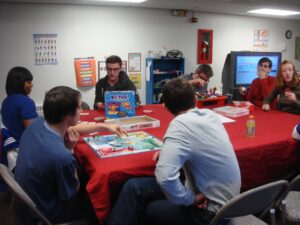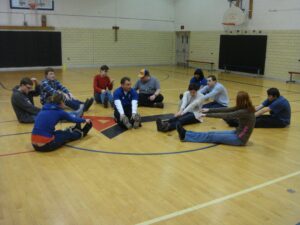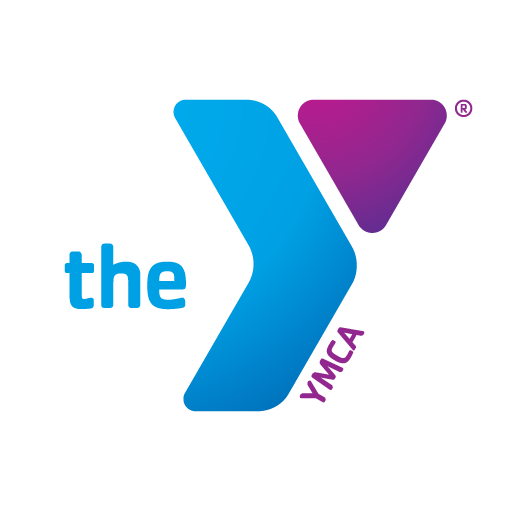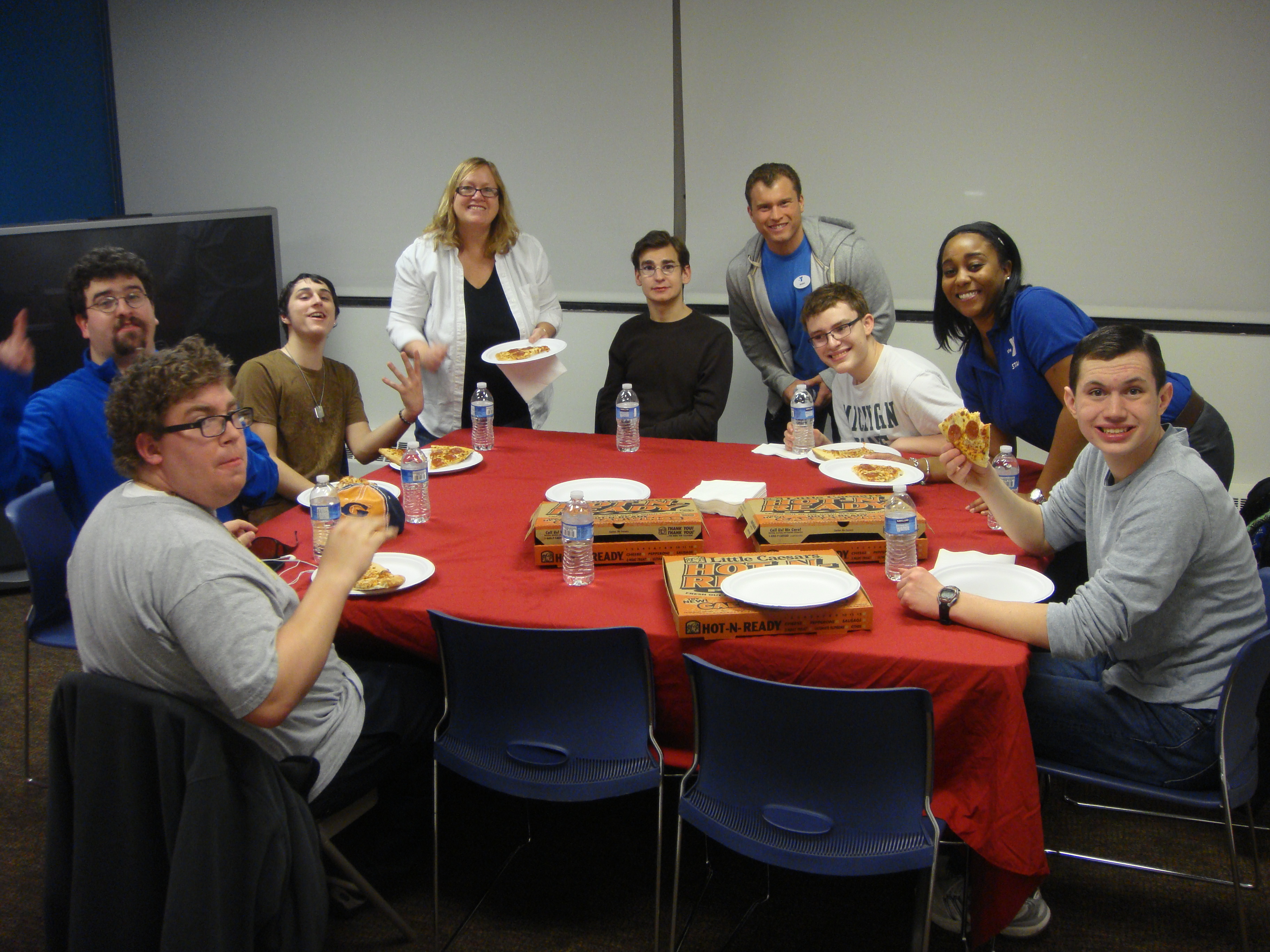For teens and twenty-somethings, social life is extremely important as they start to establish independent lives of their own. Friends really become like a second family that provides companionship and a sense of security as young people launch into the real world.
And that bond with friends is something that all young people need, regardless of disability or difference. That’s why the Birmingham YMCA stepped up to the challenge when an educator and mother of a child with autism asked them to start a program for young people like her son.
“In high school they have therapeutic services such as speech, occupational therapy, etc., and that takes the place of specialized activities like dance or sports,” says Bonnie McDonald, who approached the Y with her idea to to start a social club for teens and young adults with autism. “As they get older those things die away, and they need opportunities. They need repeated exposure to the same group of kids and a chance to practice their skills.”
 The Y launched the program in January. On Saturday evenings, a group of around a dozen kids gather at the Birmingham Y to play Wii games, build things out of Legos, play board games, share a meal, and do a physical activity. It feels like any other gathering of young people on a Saturday night….there’s high spirits, loud music, and lots of energy.
The Y launched the program in January. On Saturday evenings, a group of around a dozen kids gather at the Birmingham Y to play Wii games, build things out of Legos, play board games, share a meal, and do a physical activity. It feels like any other gathering of young people on a Saturday night….there’s high spirits, loud music, and lots of energy.
Because kids with autism generally have trouble with over-stimulation and reading social cues, Y staff will work with them and pair up people with similar interests to do things together. By this age, many of them are doing pretty well with social skills because they’ve had lots of practice, so Y staff is mostly there to guide and encourage rather than teach.
“It teaches them socialization and interaction indirectly,” says Pam Smith, who runs the program for the the Y. “When they become comfortable, it gets them to a place where they can have a community where they are accepted.”
The eventual goal is to have club members form friendships with each other, so they can get together and socialize outside of the Y and create a social circle they can transition to adulthood with — the same thing their neurotypical peers need at this age.
 Every meeting includes some physical activity like kickball, which helps keep their energy up and helps with team building, says Mark Ralko, who runs adaptive fitness programs for the Y. Unlike other places where people with special needs might feel ostracized, the people he works with in the autism socialization program as well as his other groups are comfortable at the Y. “I have noticed they are not nervous,” he says. “They have a sense that they truly belong here.”
Every meeting includes some physical activity like kickball, which helps keep their energy up and helps with team building, says Mark Ralko, who runs adaptive fitness programs for the Y. Unlike other places where people with special needs might feel ostracized, the people he works with in the autism socialization program as well as his other groups are comfortable at the Y. “I have noticed they are not nervous,” he says. “They have a sense that they truly belong here.”

